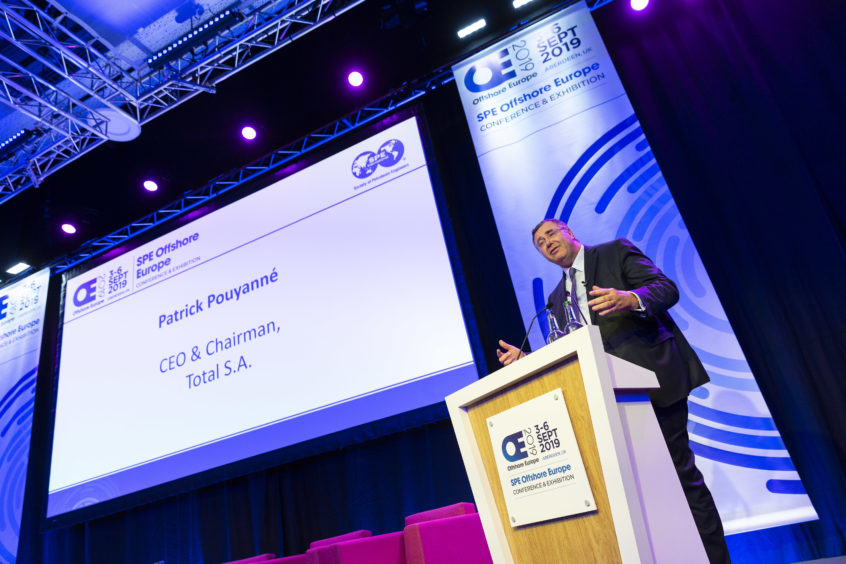
Energy giant Total has said it sees “new potential for investments” in the North Sea off the back of exploration successes in the UK.
CEO Patrick Pouyanne addressed delegates yesterday at the opening session of Offshore Europe at P&J Live in Aberdeen.
He said, despite the North Sea being perceived as “mature”, the firm has around ten billion dollars of investments planned for the next five years.
Mr Pouyanne referenced new successes like its 175million barrel Glendornach discovery in the West of Shetland last September, as well as the 250million barrel Glengorm discovered in the central North Sea in January, which Total owns a 25% stake in.
He said: “We still see new potential for investments, fully supported new exploration successes.
“Despite the traditional description of North Sea being a mature area, we continue to see strong exploration success like Johan Sverdrup in Norway but also here in the UKCS Glendronach in the West of Shetland, and more recently Glengorm in the vicinity of Elgin-Franklin and Culzean.
“Our plans in the North Sea show nearly ten billion dollars of investments in the coming five years. This is an area where we can continue to build on low-cost assets that deliver cash and profits.”
Mr Pouyanne also praised the recent start-up of its giant Culzean field in the UK sector in June, which it took operatorship of through its its £5.8bn acquisition of Danish firm Maersk Oil last year.
However, that investment may not have happened without the “incredible efforts” to reduce costs in the sector through the recent downturn.
Mr Pouyanne added: “Without a successful response to the price crash, Total would not have been seeking to make large-scale future commitments in the North Sea.”
His words were echoed by Wael Sawan, upstream director at Shell, who also addressed the conference and impressed upon delegated the need to maintain cost discipline.
He said: “Here in the UKCS at the heart of the improvements over the last five years has been the removal as much as possible of the waste that had crept into our supply chains.
“I think we’ve come a long way, I reflect on our own business here where our unit development costs and our investments in the North Sea on the UK side are down by some 45% over the last five years.
“That has fundamentally changed the attractiveness of the investments we are looking at here.”
Recommended for you

